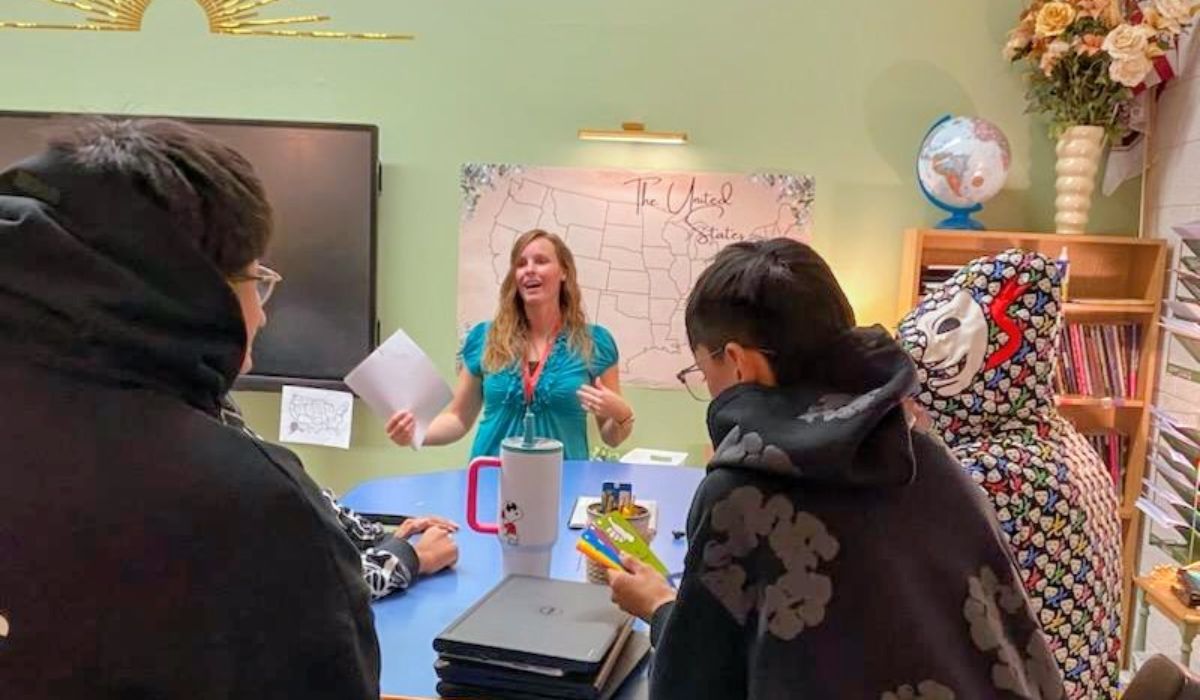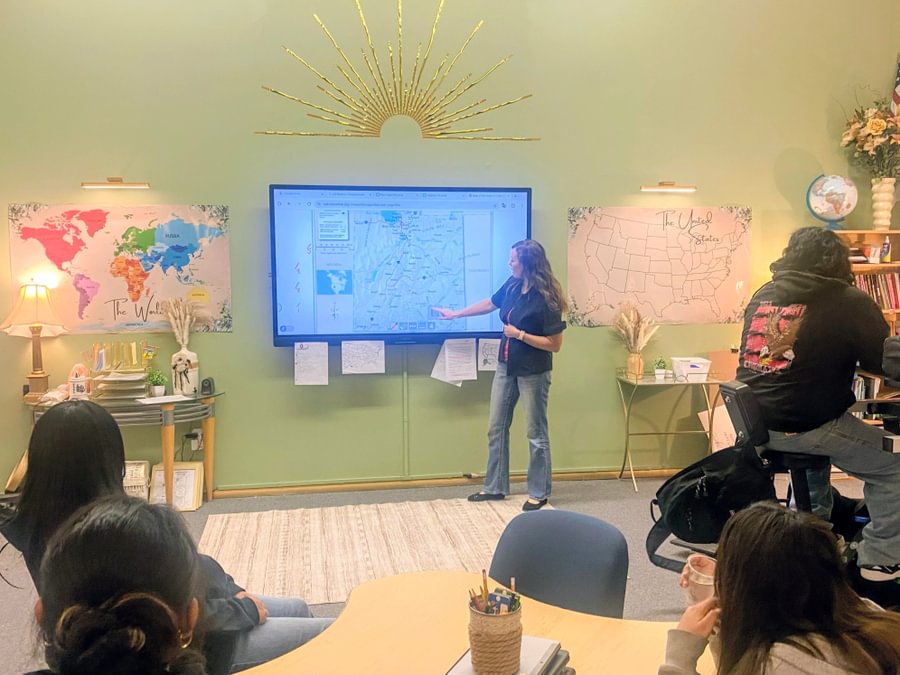
The Gettysburg College-Gilder Lehrman Institute (GLI) Master of Arts in American History program supports inclusive educators like Shawna Failner M’25 with a dynamic curriculum that encourages creativity and critical thinking.
If you visit the classroom of Shawna Failner M’25, you’ll learn something you didn’t know about American history. One morning at Uintah River High School in Fort Duchesne, Utah, Failner invited her students to think about not only where and why the 13 colonies existed in America, but also how the colonies’ establishment and development impacted the Indigenous people who were already living in North America before European colonization.
Finding new ways to support new perspectives in her classroom is just one of the benefits Failner has gained from recently receiving her master’s degree from the Gettysburg College-Gilder Lehrman Institute (GLI) Master of Arts in American History program.
“I had professors who pushed me as a writer, as someone looking into topics that haven’t been covered and unique aspects no one was looking at.”
– Shawna Failner M’25
As part of her master’s program coursework, Failner researched the impacts of European colonies on Indigenous people. She created a website and interactive map that provides students with an understanding of the colonies, including their interactions with Indigenous peoples and the colonists’ impact on Indigenous tribes.
Failner — who has taught for 12 years, nine of which were at Uintah River High School — had been seeking to pursue a master’s degree to “push the educational limits” for herself, she said.
“Ultimately, I wanted to do one in history. American history is my favorite subject to teach,” she said. “What was nice about the M.A. program was that it found professors from different schools to bring in their unique expertise. It was amazing how much [lead scholar for the Gettysburg–GLI capstone in American History] Dr. Jennifer Seman worked with me for my historiography class. It was a great introduction to the program.
“I had other professors who pushed me as a writer, as someone looking into topics that haven’t been covered and unique aspects no one was looking at. They were able to find out what I was interested in and led me in the right direction,” she continued.

Uintah River High School offers a distinctive educational setting for Failner to apply the knowledge and skills she’s gained through the Gettysburg–GLI M.A. in American History program.
The history of Indigenous people is a significant component of Utah’s state history, as the Uintah Basin is home to the Ute Native American tribe and the Uintah and Ouray Reservation. Uintah River High School is located on the reservation. Since the school’s charter is linked to the Ute tribe, educators like Failner collaborate with tribal leaders to tailor the school’s curriculum to reflect the students’ Indigenous culture and heritage.
“I tell my students all the time that one thing I love about learning is that I can have conversations with other people about the topics they’re interested in,” she said. “I love communicating with people, and the more I know, the more I can communicate. I’ve been able to look at things differently.”
Launched in September 2022, the online, fully accredited Gettysburg–GLI M.A. in American History program is open to K-12 educators like Failner, community college instructors, district supervisors, museum professionals, and National Park Service employees affiliated with the Gilder Lehrman Institute of American History.
Related Links:
External Links:
By Michael Vyskocil
Photos provided by Shawna Failner M’25
Posted: 09/30/25